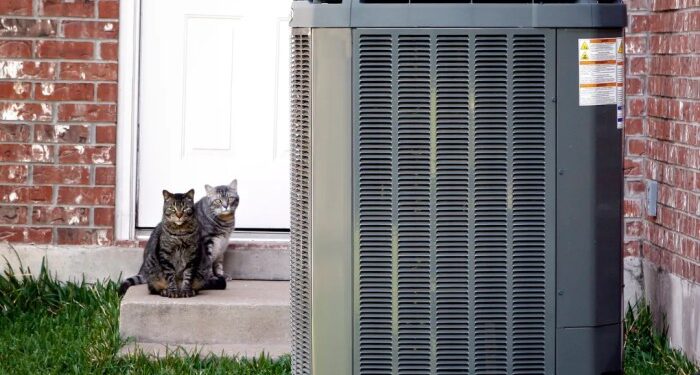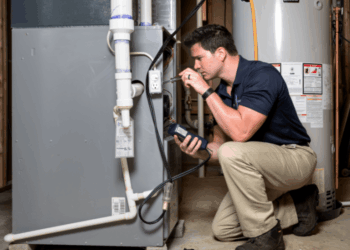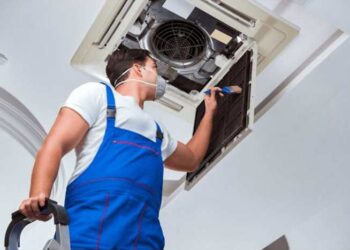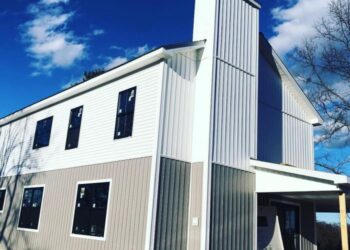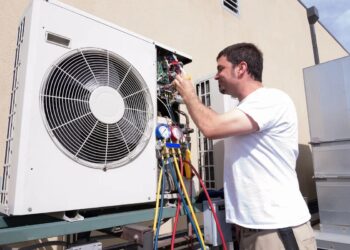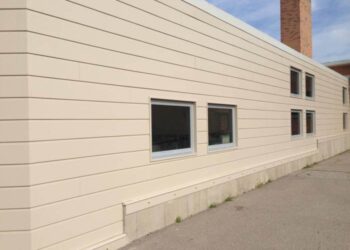When it comes to staying cool in hot climates, having energy-efficient AC units is key. Not only do they help in keeping your space comfortable, but they also contribute to cost savings and environmental benefits. Let's delve into the world of energy-efficient AC units tailored for hot climates.
Overview of Energy Efficient AC Units for Hot Climates

Energy efficiency is crucial when it comes to AC units in hot climates as they are used extensively to combat the intense heat. Energy efficient AC units not only help in reducing electricity bills but also have a positive impact on the environment by consuming less energy.
Key Features of Energy Efficient AC Units
- High SEER Rating: Energy efficient AC units have a high Seasonal Energy Efficiency Ratio (SEER) rating, indicating their ability to cool efficiently with minimal energy consumption.
- Inverter Technology: AC units with inverter technology adjust the compressor speed based on cooling needs, resulting in lower energy usage.
- Programmable Thermostat: Programmable thermostats allow users to set temperature preferences, optimizing energy usage based on occupancy and time of day.
- Energy Star Certification: Energy Star certified AC units meet strict energy efficiency guidelines set by the U.S. Environmental Protection Agency, ensuring reduced energy consumption.
Impact of Energy Efficiency on Cost Savings and Environmental Benefits
Energy efficient AC units can lead to significant cost savings on electricity bills over time. By consuming less energy, these units reduce the overall carbon footprint and contribute to a greener environment. Additionally, the efficient cooling provided by these units can improve indoor air quality and overall comfort while minimizing environmental impact.
Types of Energy Efficient AC Units
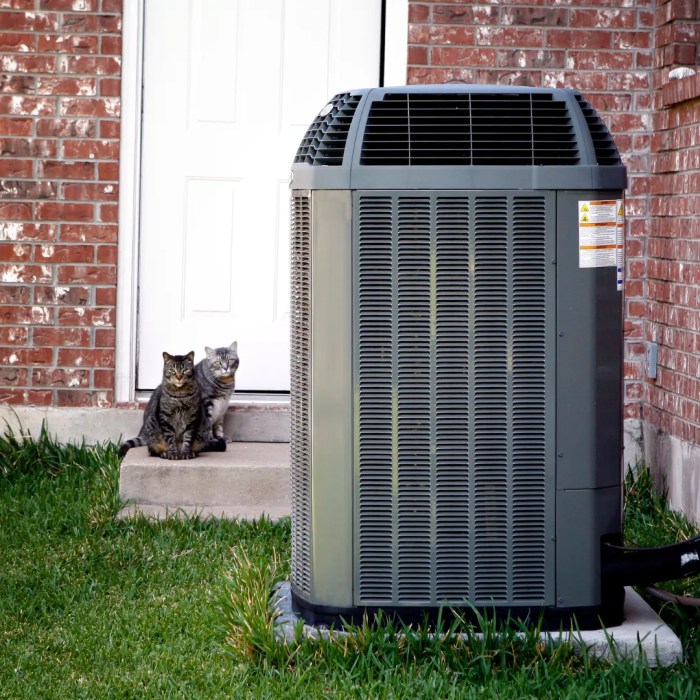
When it comes to energy efficient AC units for hot climates, there are several types available in the market. These units are designed to provide effective cooling while minimizing energy consumption, making them ideal for regions with high temperatures.
Inverter vs. Non-Inverter AC Units
Inverter AC units are known for their energy efficiency as they can adjust the compressor speed based on the cooling needs, resulting in lower energy consumption. On the other hand, non-inverter AC units operate at a fixed speed, leading to higher energy usage.
In hot climates, inverter AC units are more suitable as they can maintain consistent cooling without consuming excess power.
Innovative Technologies in Energy Efficient AC Units
Energy efficient AC units often incorporate innovative technologies to improve performance and reduce energy consumption. For example, some units use advanced sensors to detect room temperature and adjust cooling levels accordingly. Others may utilize dual inverter compressors for enhanced efficiency.
These technologies help in maximizing cooling capacity while minimizing energy usage.
Cooling Capacity and Efficiency Ratings
When choosing an energy efficient AC unit for a hot climate, it is essential to consider the cooling capacity and efficiency ratings. The cooling capacity is measured in BTUs (British Thermal Units) and indicates the amount of heat an AC unit can remove from a room.
Higher BTU ratings are suitable for larger spaces or areas with high heat loads. Efficiency ratings, such as SEER (Seasonal Energy Efficiency Ratio) or EER (Energy Efficiency Ratio), provide insight into how efficiently an AC unit operates. Units with higher SEER or EER ratings are more energy efficient and can help reduce electricity bills in hot climates.
Factors to Consider When Choosing an Energy Efficient AC Unit
When selecting an energy-efficient AC unit for hot climates, there are several key factors to keep in mind to ensure optimal performance and cost-effectiveness. From the size of the unit to its energy star ratings and Seasonal Energy Efficiency Ratio (SEER), each element plays a crucial role in determining the efficiency and effectiveness of the cooling system.
Size Matters
One of the most important factors to consider when choosing an energy-efficient AC unit is the size of the system. An oversized unit will lead to frequent cycling on and off, resulting in energy wastage and inadequate dehumidification. On the other hand, an undersized unit will struggle to cool the space efficiently, leading to increased energy consumption and higher utility bills.
Energy Star Ratings
Another crucial factor to consider is the Energy Star rating of the AC unit. Energy Star certified units are designed to meet strict energy efficiency guidelines set by the Environmental Protection Agency (EPA). These units consume less energy, reduce greenhouse gas emissions, and ultimately save you money on your utility bills.
Seasonal Energy Efficiency Ratio (SEER)
The SEER rating of an AC unit indicates its energy efficiency over a cooling season. A higher SEER rating signifies better energy efficiency, meaning the unit will consume less electricity to cool your space. Choosing a unit with a high SEER rating is essential for reducing energy consumption and operating costs in hot climates.
Proper Installation and Maintenance
Proper installation and regular maintenance are crucial for enhancing the efficiency and longevity of your energy-efficient AC unit. Improper installation can lead to air leaks, inadequate airflow, and reduced efficiency. Regular maintenance, including filter replacement, coil cleaning, and system inspections, can ensure optimal performance and energy savings.
Programmable Thermostats and Smart Features
Investing in a programmable thermostat or an AC unit with smart features can further enhance energy efficiency in hot climates. Programmable thermostats allow you to set temperature schedules based on your daily routine, preventing unnecessary cooling when you are not at home.
Smart features such as remote access and energy usage tracking provide you with greater control over your cooling system, helping you optimize energy consumption and save on costs.
Tips for Optimizing Energy Efficiency in AC Units for Hot Climates
Setting the right temperature and utilizing features like sleep mode can significantly enhance the energy efficiency of your AC unit. Proper insulation and sealing are also crucial factors for maximizing the efficiency of your cooling system. Regular maintenance practices play a key role in ensuring the optimal performance of energy-efficient AC units.
Setting the Right Temperature and Using Sleep Mode
- Set your thermostat to the highest comfortable temperature to reduce energy consumption.
- Utilize the sleep mode feature that adjusts the temperature for nighttime comfort without wasting energy.
- Consider using a programmable thermostat to automatically adjust the temperature based on your schedule.
Benefits of Proper Insulation and Sealing
- Proper insulation helps keep the cool air inside, reducing the workload on your AC unit.
- Sealing any gaps or leaks in doors, windows, and ductwork prevents hot air from infiltrating your home.
- Investing in energy-efficient windows and doors can further improve insulation and reduce energy costs.
Regular Maintenance Practices
- Change the air filters regularly to ensure optimal airflow and energy efficiency.
- Schedule annual professional maintenance to clean coils, check refrigerant levels, and address any issues promptly.
- Keep the outdoor unit free from debris and vegetation to maintain proper airflow.
Conclusive Thoughts
With a focus on energy efficiency, choosing the right AC unit for hot climates can make a significant impact on your comfort and savings. By understanding the key features, types, and factors to consider, you can optimize your cooling experience while being conscious of energy consumption.
FAQs
What are the key features that make AC units energy efficient in hot climates?
Key features include variable speed motors, high SEER ratings, and smart thermostat compatibility.
How can proper installation enhance the efficiency of AC units in hot climates?
Proper installation ensures optimal airflow, reduces energy waste, and maximizes cooling performance.
What are some tips for optimizing energy efficiency in AC units for hot climates?
Setting the right temperature, utilizing sleep mode, and ensuring proper insulation are key tips for efficiency.

